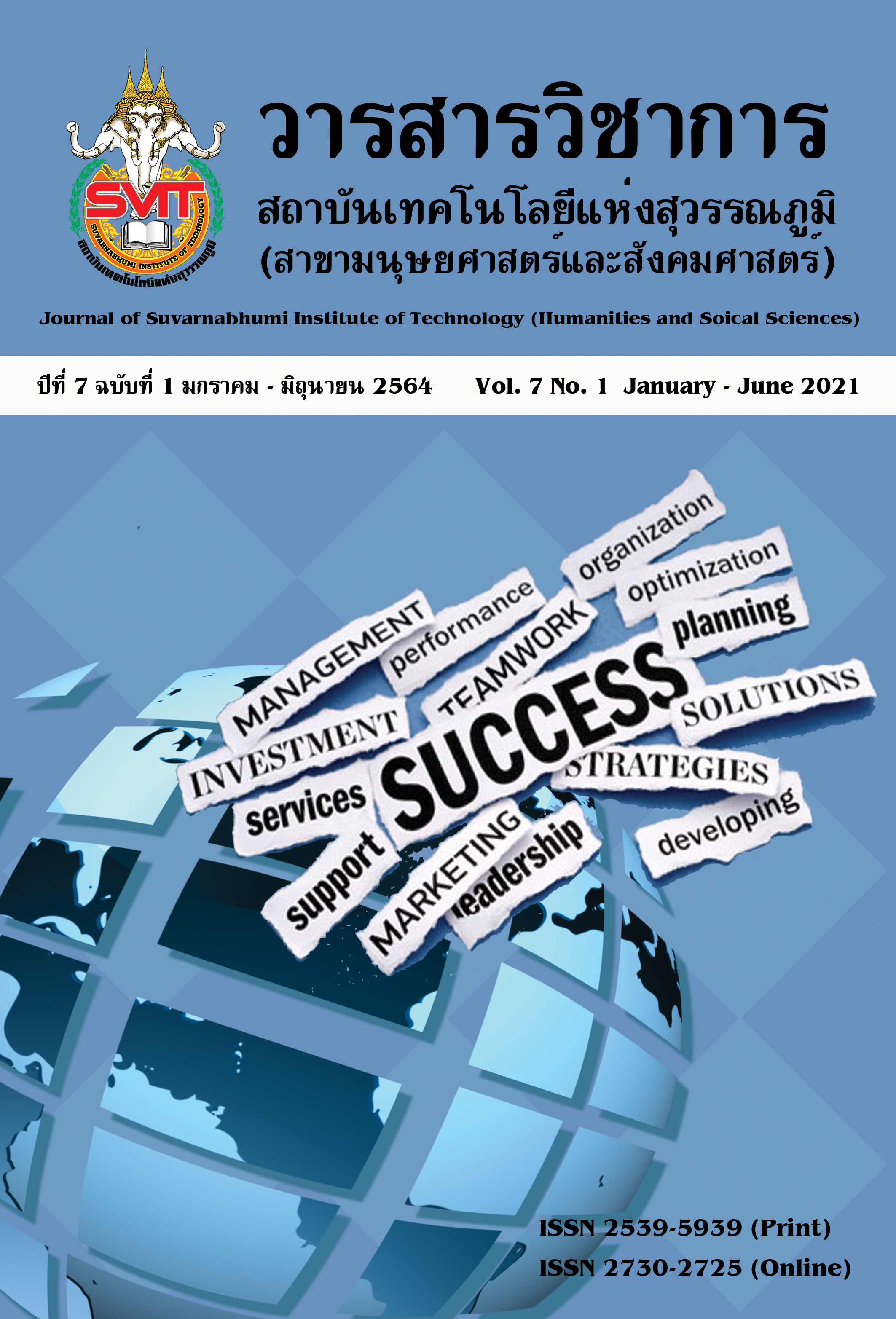DEVELOPMENT OF CURRICULUM MANAGEMENT MODEL IN EDUCATIONAL FOUNDATION SCHOOL WITHIN EDUCATIONAL AREA OF LOPBURI, SARABURI, AND SINGBURI PROVINCE
Keywords:
Course Administration, Basic education institute, area of Lopburi Saraburi and SingburiAbstract
The purpose of this research is to develop the curriculum management model of basic education institutions in the educational area of Lopburi, Saraburi and SingBuri to achieve better student achievement. The quality is divided into 3 steps: step 1 is to study the conditions and problems in the curriculum administration of basic schools in Education area in LopBuri, Saraburi and SingBuri provinces by using in-depth interview method with 2 school directors per province Saraburi and SingBuri by using a group research method. Discussions with 4 experts and 3 school directors each province is included. The members who attended the discussion groups of 13 variables studied, is to develop a model curriculum consists of. Course objectives, curriculum content structure, curriculum implementation, curriculum evaluation And monitoring and evaluation, and step 3 is a feasibility study of the curriculum management model of basic education institutions in the educational area of LopBuri, Saraburi and SingBuri
The results of the research in each step are as follows: Step 1 the conditions and problems in the curriculum administration of basic education institutions in the educational area of LopBuri, Saraburi and SingBuri will be the process of proceedings starting from consideration. The course that will be used in teaching, organizing teachers in each course of each class, creating a lesson plan for each teacher responsible for Teaching in each course, teaching, recruitment and preparation of teaching materials, creating tools for measuring, evaluating performance and reporting of student results, and as an action model in this manner every year. Step 2 Development of the curriculum management model of basic education institutions in the educational area of LopBuri, Saraburi and SingBuri. In 2008, when the purpose of this course was to follow the core curriculum of basic education, except for the purpose of each subject that the educational institution can define itself, the content structure of the course, the discussion group agreed that it should be the same as the content. Of the core curriculum of study In addition, the discussion group considers that each subject should direct the teaching and learning of the teacher by pointing out how much time should be spent in the teaching and learning of the theory, practice and practice. Self-study, use of the curriculum in teaching should be the knowledge of the teacher rather than taking the form of study, it is only a supplementary book for students. The discussion group agreed that the evaluation of the curriculum after the completion of the course administration in each academic year and the discussion group saw that the basic school board consisting of the director of the school, the deputy director of the educational institute, the head of the academic teacher, the head of the group Every group will be directed to monitor, evaluate in all matters related to the administration of the curriculum and the steps 3 The feasibility study of the curriculum management model of basic education institutions in the educational area of LopBuri, Saraburi and SingBuri found that the school director who attended the meeting to acknowledge the curriculum management style of the place Basic education in the educational area of LopBuri, Saraburi and SingBuri Saw that there is a high possibility because it is a form that is not different from the original format that has been performed very much, not considered as increasing the workload for the school administrators and affecting the quality assurance And less national tests as well.
References
กระทรวงศึกษาธิการ. (2551). หลักสูตรแกนกลางการศึกษาขั้นพื้นฐาน พุทธศักราช 2551. กรุงเทพมหานคร: โรงพิมพ์คุรุสภาลาดพร้าว.
โกวิท วงศ์สุรวัฒน์. (2543). พื้นฐานรัฐศาสตร์กับการเมืองในศตวรรษที่ 21. กรุงเทพฯ: โครงการปริญญาโทรัฐศาสตร์มหาวิทยาลัยธรรมศาสตร์.
ความต้องการแรงงานของผู้ประกอบการ. (2560, 23 มีนาคม). มติชน.
ฆนัท ธาตุทอง. (2552). การออกแบบการสอนและบูรณาการ. นครปฐม: เพชรเกษมการพิมพ์.
ฐากร ตัณฑ์สิทธิ์. (2561, 4 มีนาคม). คอลัมน์ “แท็งค์ความคิด; เพื่อนใหม่. มติชน.
ธำรง บัวศรี. (2542). ทฤษฎีหลักสูตร: การออกแบบและการพัฒนา (พิมพ์ครั้งที่ 2). กรุงเทพมหานคร: สำนักพิมพ์พัฒนาศึกษา.
บุญเลี้ยง ทุมทอง. (2553). การพัฒนาหลักสูตร. กรุงเทพฯ: สำนักพิมพ์แห่งจุฬาลงกรณ์มหาวิทยาลัย.
บุญเลี้ยง ทุมทอง. (2553). แนวทางการพัฒนาการสอนกระบวนการคิด (พิมพ์ครั้งที่ 2). มหาสารคาม: สำนักพิมพ์มหาวิทยาลัยมหาสารคาม.
ผู้อำนวยการสถานศึกษา. (2561, 5–9 มีนาคม). สุรพล พุฒคำ [สัมภาษณ์.]
วิชัย วงศ์ใหญ่. (2554). การพัฒนาหลักสูตรระดับอุดมศึกษา (พิมพ์ครั้งที่ 2). กรุงเทพฯ: บริษัทอาร์ แอนด์ ปริ้นท์จำกัด.
Brown, L.G. (1990). Convenience in Services Marketing. Journal of Services Marketing, 4(1), 53-59.
Krueger, Richard A. (1988). Focus Group: A Practical Guide for Applied Research. London: SAGE Publications.
Lunenber, Fred C. & Ornstein, Allan C. (1996). Educational Administration: Concepts and Practices (2nd Ed.). Belmont: Wadsworth Publishing.
Downloads
Published
Issue
Section
License
The articles published are copyrighted by the Sarasas Journal of Humanities and Social Science. The opinions expressed in each article in this academic journal are those of the individual authors and do not reflect the views of Sarasas Suvarnabhumi Institute of Technology. The authors are solely responsible for all aspects of their respective articles. Any errors or inaccuracies in the articles are the sole responsibility of the authors.



